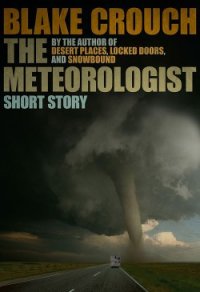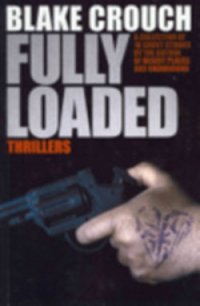Einstein's Monsters - Amis Martin (книги без регистрации бесплатно полностью .TXT) 📗
Жалоба
Напишите нам, и мы в срочном порядке примем меры.
Einstein's Monsters - Amis Martin (книги без регистрации бесплатно полностью .TXT) 📗 краткое содержание
MARTIN AMIS hates nuclear weapons, and he doesn't care who knows it. In fact, he wants everyone to know it. At mid-career, he has virtually ceased to be a writer of fiction-from 1974 to 1984, he published five comic novels, including the hugely successful Money-and has metamorphosed instead into a kind of anti-nuclear polemicist. Einstein's Monsters, his most recent work, is a collection of stories based on the theme of nuclear holocaust. Lest anyone think this is a chance engagement, Amis has followed up Einstein's Monsters with an article in the October Esquire railing against the insanity of American nuclear planning. The article, a rehash of the Introduction to the present volume, is most notable not for its politics but for the warning it includes to those of us waiting for the return of a depoliticized Martin Amis: "When nuclear weapons become real to you,' he tells us, "hardly an hour passes without some throb or flash, some heavy pulse of imagined super-catastrophe.' The hydrogen bomb has claimed its first English target, and it is the career of Martin Amis.
In his new role, Amis runs around like the sheriff in Jaws, as if he's the only person who knows there's a shark in town and everyone else is trying to keep the beaches open. The Esquire article gives a good sense of the fundamental cheesiness of his political thinking. The members of the Washington nuclear establishment, he says, don't mind talking about "X-ray lasers and hard-kill capabilities,' but they "go green' when the author tries to light up a cigarette. When the author interviews an attache from the Soviet embassy, on the other hand, things go differently; the two "drink a lot of coffee and smoke up a storm.' "Sergi and I got along fine,' Amis tells us. "He didn't want to kill me. I didn't want to kill him.' Amis has invented the Marlboro Peace Plan.
Einstein's Monsters is only a touch more subtle. It consists of five stories, along with both an "Author's Note' and an Introduction. In his Note, Amis vacillates upon the question of whether the stories are polemical. "If they arouse political feelings,' he tells us, "that is all to to the good,' but really, they "were written with the usual purpose in mind: that is to say, with no purpose at all-except, I suppose, to give pleasure, various kinds of complicated pleasure.'
If there is any confusion in the reader's mind, however, it is cleared up by the first story, "Bujak and the Strong Force.' Reading it, one is reminded of the experience of sitting in a college fiction workshop, the excited author right there next to you, enthusiastically explaining the intricacies of his story's symbolic order.
Bujak, the title character, is a hugely powerful Eastern European living in a bad neighborhood in London. A survivor of the Nazi occupation of Poland, he spends a great deal of time arguing with the (American) narrator over the value of revenge. The narrator is anti, Bujak is pro. Bujak polices his block, rounds up petty criminals, makes the streets safe for young ladies at night. "He was our deterrent,' the narrator says. At the end of the story, when Bujak returns to his home to find his mother, daughter, and granddaughter brutally rape-murdered, the drunken perpetrators lying asleep on the floor, we expect him to exact some terrible revenge. But he doesn't. "Why?' the narrator asks. "No court on earth would have sent you down.' (Is this how Americans speak, by the way?) "When I had their heads in my hands,' Bujak replies, "I thought how incredibly easy to grind their faces together. But no… I had no wish to add to what I found.' It's… unilateral disarmament!
Throughout Einstein's Monsters Amis the author is at war with Amis the nuclear theoretician. "Insight at Flame Lake,' for example, would have been a fine schizophrenic-breakdown story, except that Amis the theoretician felt compelled to tack on an anti-nuclear subtext. "Thinkability,' the long introduction to Einstein's Monsters, has its flashes of brilliant writing (the generations of unborn babies who would be aborted by a nuclear war are described as "queueing up in spectral relays until the end of time'), but it is marred by the same sort of simplistic reasoning that plagues the Esquire piece. Amis wants to pin all our problems on the existence of nuclear weapons. In the face of these missiles, no merely personal atrocity matters: "What vulgar outrage or moronic barbarity can compare with the black dream of nuclear exchange?' It's like asking a meter maid, "How dare you give me a ticket when there are Russian tanks illegally parked on the streets of Kabul?' But Amis the satirist knows that it takes a lot more than nuclear weaponry to explain the spiritual malaise of our century, just as Amis the writer knows (or ought to know) that there is always more than one explanation for any human phenomenon. One suspects, in fact, that Amis's opposition to the Strategic Defense Initiative is derived not from the fear of a perilous escalation in the arms race, but from a (perhaps unconscious) perception that, with nuclear weapons gone, the novelist would have to face the fact of unexcused human weakness again.
Einstein's Monsters читать онлайн бесплатно
Martin Amis
Einstein's Monsters

AUTHOR'S NOTE
Some readers might like to read the introductory essay last or later. It is polemical, whereas the stories that follow were written with the usual purpose in mind: that is to say, with no purpose at all-except, I suppose, to give pleasure, various kinds of complicated pleasure. Previously I had managed only four short stories in sixteen years; these five came successively over the last two years-and then they stopped. If the stories also arouse political feelings then that is all to the good. In this debate, in this crap game, I do want to get my chip on the table, however thin, however oddly colored, however low its denomination. "Einstein's Monsters," by the way, refers to nuclear weapons but also to ourselves. We are Einstein's monsters, not fully human, not for now. May I take the opportunity to discharge-or acknowledge-some debts? In order of composition: "The Time Disease" owes something to J. G. Ballard; "Insight at Flame Lake" to Piers and Emily Read and to Jack and Florence Phillips; "The Little Puppy That Could" to Franz Kafka and to Vladimir Nabokov; "Bujak and the Strong Force" to Saul Bellow; and "The Immortals" to Jorge Luis Borges and to the Salman Rushdie of Grimus. And throughout I am grateful to Jonathan Schell, for ideas and for imagery. I don't know why he is our best writer on this subject. He is not the most stylish, perhaps, nor the most knowledgeable. But he is the most decorous and, I think, the most pertinent. He has moral accuracy; he is unerring.
M. A., London
INTRODUCTION: THINKABILITY
I was born on August 25, 1949: four days later, the Russians successfully tested their first atom bomb, and deterrence was in place. So I had those four carefree days, which is more than my juniors ever had. I didn't really make the most of them. I spent half the time under a bubble. Even as things stood, I was born in a state of acute shock. My mother says I looked like Orson Welles in a black rage. By the fourth day I had recovered, but the world had taken a turn for the worse. It was a nuclear world. To tell you the truth, I didn't feel very well at all. I was terribly sleepy and feverish. I kept throwing up. I was given to fits of uncontrollable weeping… When I was eleven or twelve the television started showing target maps of South East England: the outer bands of the home counties, the bull's-eye of London. I used to leave the room as quickly as I could. I didn't know why nuclear weapons were in my life or who had put them there. I didn't know what to do about them. I didn't want to think about them. They made me feel sick.
Now, in 1987, thirty-eight years later, I still don't know what to do about nuclear weapons. And neither does anybody else. If there are people who know, then I have not read them. The extreme alternatives are nuclear war and nuclear disarmament. Nuclear war is hard to imagine; but so is nuclear disarmament. (Nuclear war is certainly the more readily available.) One doesn't really see nuclear disarmament, does one? Some of the blueprints for eventual abolition-I am thinking, for example, of Anthony Kenny's "theoretical deterrence" and of Jonathan Schell's "weaponless deterrence"-are wonderfully elegant and seductive; but these authors are envisioning a political world that is as subtle, as mature, and (above all) as concerted as their own solitary deliberations. Nuclear war is seven minutes away, and might be over in an afternoon. How far away is nuclear disarmament? We are waiting. And the weapons are waiting.
What is the only provocation that could bring about the use of nuclear weapons? Nuclear weapons. What is the priority target for nuclear weapons? Nuclear weapons. What is the only established defense against nuclear weapons? Nuclear weapons. How do we prevent the use of nuclear weapons? By threatening to use nuclear weapons. And we can't get rid of nuclear weapons, because of nuclear weapons. The intransigence, it seems, is a function of the weapons themselves. Nuclear weapons can kill a human being a dozen times over in a dozen different ways; and, before death-like certain spiders, like the headlights of cars-they seem to paralyze.
Indeed they are remarkable artifacts. They derive their power from an equation: when a pound of uranium-235 is fissioned, the liberated mass within its 1,132,000,000, 000,000,000,000,000 atoms is multiplied by the speed of light squared-with the explosive force, that is to say, of 186,000 miles per second times 186,000 miles per second. Their size, their power, has no theoretical limit. They are biblical in their anger. They are clearly the worst thing that has ever happened to the planet, and they are mass-produced, and inexpensive. In a way, their most extraordinary single characteristic is that they are manmade. They distort all life and subvert all freedoms. Somehow, they give us no choice. Not a soul on earth wants them, but here they all are.
I am sick of them-I am sick of nuclear weapons. And so is everybody else. When, in my dealings with this strange subject, I have read too much or thought too long-I experience nausea, clinical nausea. In every conceivable sense (and then, synergistically, in more senses than that) nuclear weapons make you sick. What toxicity, what power, what range. They are there and I am here-they are inert, I am alive-yet still they make me want to throw up, they make me feel sick to my stomach; they make me feel as if a child of mine has been out too long, much too long, and already it is getting dark. This is appropriate, and good practice. Because I will be doing a lot of that, I will be doing a lot of throwing up, if the weapons fall and I live.
Every morning, six days a week, I leave the house and drive a mile to the flat where I work. For seven or eight hours I am alone. Each time I hear a sudden whining in the air, or hear one of the more atrocious impacts of city life, or play host to a certain kind of unwelcome thought, I can't help wondering how it might be. Suppose I survive. Suppose my eyes aren't pouring down my face, suppose I am untouched by the hurricane of secondary missiles that all mortar, metal, and glass has abruptly become: suppose all this. I shall be obliged (and it's the last thing I'll feel like doing) to retrace that long mile home, through the firestorm, the remains of the thousand-mile-an-hour winds, the warped atoms, the groveling dead. Then-God willing, if I still have the strength, and, of course, if they are still alive-I must find my wife and children and I must kill them.
What am I to do with thoughts like these? What is anyone to do with thoughts like these?
Although we don't know what to do about nuclear weapons, or how to live with nuclear weapons, we are slowly learning how to write about them. Questions of decorum present themselves with a force not found elsewhere. It is the highest subject and it is the lowest subject. It is disgraceful, and exalted. Everywhere you look there is great irony: tragic irony, pathetic irony, even the irony of black comedy or farce; and there is irony that is simply violent, unprecedentedly violent. The mushroom cloud above Hiroshima was a beautiful spectacle, even though it owed its color to a kiloton of human blood…
In the discursive sphere there are several ways of writing badly about nuclear weapons. Some people, you finally conclude, just don't get it. They just don't get it. They are published versions of those bus-stop raconteurs who claim that nuclear war won't be "that bad," especially if they can make it down to their aunt's cottage in Dorset (or, better still, if they are already in their aunt's cottage at the time). They do not see the way nuclear weapons put everything into italic capitals. Failing to get the point about nuclear weapons is like failing to get the point about human life. This, in fact, is the basis of our difficulty.

![[Magazine 1968-012] - The Million Monsters Affair - Davis Robert Hart (читать книги TXT) 📗](/uploads/posts/books/56864/56864.jpg)


